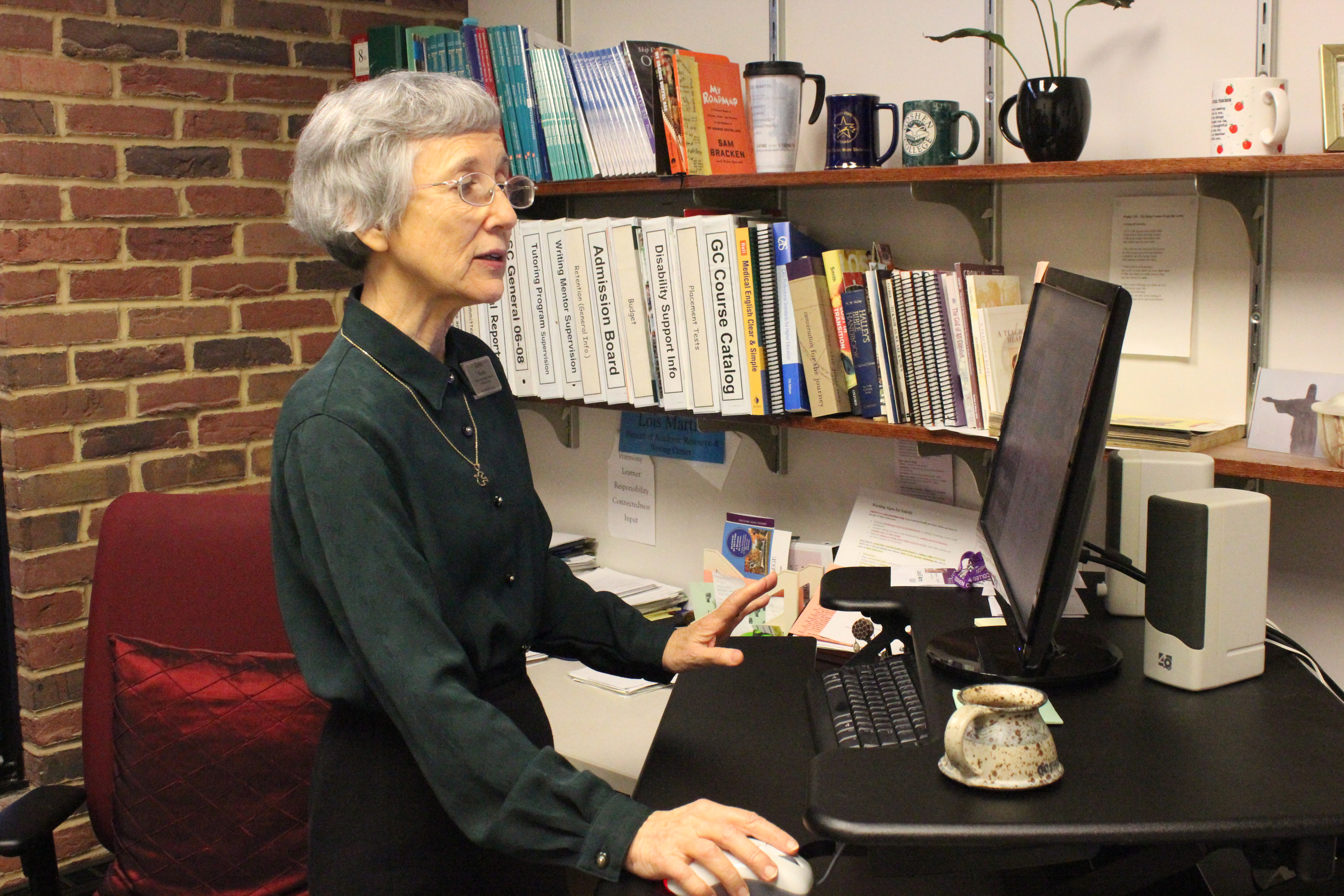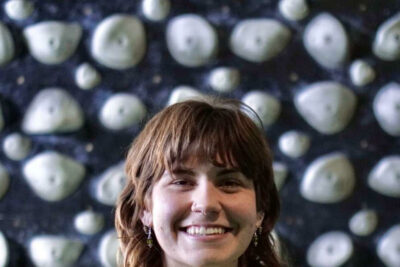March is Disabilities Awareness Month. Sarah Poisson Osiro, a leader of the Disability Student Union and third-year student here at Goshen, said that this month is important to her “because it is a month [when] people with different learning styles can teach others that there are different ways to learn.”
Osiro finds that working in groups helps her a lot. While she finds memorization and reading difficult, group discussion comes naturally to her.She said, “if I work with others, the sky is the limit for me.”
Many are quick to group all people with learning disabilities together. For the most part, this happens because people don’t understand that different disabilities call for different accommodations.
Morgan Owens, junior and another DSU leader, noted that having extra time on tests helps her to succeed academically. For first-year Mary Seeck, whose disability is physical, “It helps for me to take my tests outside the classroom when I have a pain flare-up and it is hard for me to concentrate.”
First-year Eliana Neufeld Basinger also cautioned against stereotyping, noting that students with learning disabilities don’t necessarily struggle with all academics.
She said “the same person can be disabled in one way and extraordinarily gifted in other ways.”
Neufeld Basinger, whose learning disability affects her organization, work efficiency and ability to do math, has an exceptional capacity for reading comprehension.
According to Osiro, it is important to avoid alienating people because of their disabilities.
“There are barriers that affect how certain individuals learn. These barriers can cause people with a disability to become stronger as individuals or can cause them to retract and have low self-esteem,” said Osiro.
Reactions and lack of support from peers can contribute to this low self-esteem.
The lack of support, as Osiro notes, is a form of discrimination that is often overlooked.
Osiro said, “In all my classes we hear about discrimination, but I often do not hear people bring up people with disabilities.”
Yet, when students feel comfortable claiming their disabilities and seeking the accommodations they need, success is absolutely possible, even in areas of difficulty.
“I struggled and almost failed school my first semester because I was not sure who to ask help from,” Osiro said.
The difference came when Osiro discovered Lois Martin and the Academic Resource and Writing Center here at Goshen. Now, Osiro said she has “proven many individuals wrong because now I am a junior at GC getting a degree in social work.”
Martin, the director of the ARWC, is equipped to help students with disabilities succeed. Martin says that for her, “assisting students is enjoyable and rewarding.”
Like Osiro, Owens is very grateful for the support she has received from Martin and Goshen College.
She said, “without these types of services, I know college would be almost impossible for me.”
Neufeld Basinger noted that the support is much better than that which her high school provided. There, her learning disabilities were ignored because she worked hard to keep her grades up. Here, she values the fact that “you don’t need to have bad grades to get help.”
Neufeld Basinger also finds the tutoring services which the ARWC provides to be a valuable resource. She, as someone who has tutored others and also been tutored, said, “to take advantage of the tutoring resources, students don’t need to have a learning disability of any kind. It could be as simple as not having the drive to focus on a certain class.”
Osiro suggests that students who don’t need tutoring themselves ought to help those around them.
“We are no longer in a time period when an individual who has cognitive or physical impairment should have to be last to learn what everyone else in the class is learning,” said Osiro. “If you see one of your classmates is struggling, lift them up by taking the extra few minutes to help them understand what you understand.”
DSU invites the Goshen College community to conclude the month of March with a greater attentiveness to those among us who have the courage to name their disabilities, and in the spirit of a true community of learners, help one another to find the resources, which will lead to success.
Martin said, “every admitted student deserves the opportunity to work toward her or his educational goal at Goshen College.”
Students can get connected and start using disability support services by coming to the Academic Resource & Writing Center on the first floor of the Good Library, by emailing Lois Martin at lmartin@goshen.edu, or by calling 574-535-7576.

